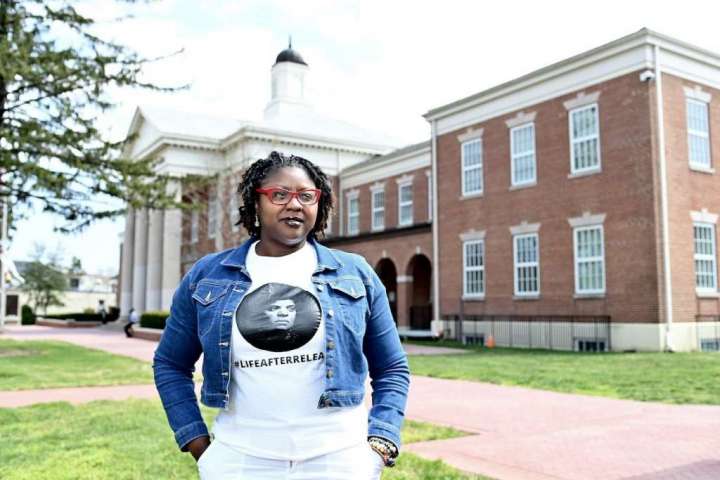Qiana Johnson stood at the microphone in the Eaton House, a progressive co-working space in downtown D.C., and described what she saw as the main facet of a courtroom: its emptiness. In Johnson’s telling, a court is a place where powerful actors — the judge, the prosecutors — have wide latitude to do what they want and little threat of accountability.
New Black-led group will battle injustice in the D.C. court system

Johnson, 41, saw it herself, after she was convicted of theft and other charges in 2015 and separated from her two sons. After her release two years later, she began work on courtroom accountability and prison abolition. Now, Johnson serves as the executive director of Life After Release, legal defense conductor of Harriet’s Wildest Dreams and the founder of Courtwatch PG. Johnson said she wants people to see injustice for themselves and on Saturday launched a D.C. branch of Courtwatch.
“As I was going through the criminal legal system, what I realized was that it had nothing to do with right or wrong, just or unjust,” Johnson said. “It felt like I was having an out-of-body experience. I thought, ‘People are not going to believe what I’m going through. I have to find a way to let people see this for themselves.’” Now she wants “a community-based program that would entice people to come into the courts, watch the courts, and report back.”
A core principle of Courtwatch is addressing the arbitrary nature of the justice system. One of the roughly 40 attendees Saturday cited a woman she knew of who’d been in the hospital with bleeding legs but was nevertheless brought to the courtroom. The audience viewed several D.C. hearings on video and pointed to problems, such as one defendant’s lack of a microphone, which made it difficult to hear them.
“Judges in D.C. aren’t accountable to their community,” Johnson said. “What we’re watching the courts for in D.C. is to show the inconsistencies in how police show up. Through watching the courts in D.C., we can actually determine police brutality.”
To give defendants back their humanity, Johnson and others at the event referred to the defendants as “loved ones.” One attendee, JT Todd, who has lived in the District for three years, thought court viewings can protect someone from “being put into the system.”
“I wanted to get involved with community activism and help increase harm reduction,” Todd, 22, said. “I’d like to prevent putting people in prison and replace it with something more humane.”
Johnson said she hopes Courtwatch can shine a light and show people how much latitude a prosecutor has. She asks volunteers — about 100 per month, she says — to watch hearings, either live or remotely, for careless judges, overzealous prosecutors and other forms of maltreatment that punish defendants.
“Judges and prosecutors have more power than the president, if you ask me,” Johnson said.
Johnson said Courtwatch does rigorous tracking through spreadsheets and forms and has a contractor writing software to collate its findings. Watchers record names of each attorney and judge, the charges, the type of recommendation offered by the state, what the judge recommended or ordered and other measures. A notation in the file might be triggered by, say, visible signs that the defendant was in discomfort or looked abused, she said. In one video at the event, viewers saw a man who struggled to walk. Johnson said she wants to create a robust yearly report analyzing all of it that will help hold judges accountable.
“Nobody knows what goes on in these courtrooms, and it’s some of the most egregious things, but judges don’t have to report that,” Johnson said. “Everybody has to provide a report of what’s going on in their offices. Judges don’t have to do that.”
Johnson said that court watchers — 70 are trained in D.C. — go through two hours of training to understand legal language, what to do and not do in a courtroom, and how a court operates. They are sometimes recruited through nonprofits such as Harriet’s Wildest Dreams. She also said the training helps potential watchers learn how to process grief: “It’s brutal and gruesome to hear what people go through.”
Johnson said her work highlights how courtrooms affect people of color in an unjust way. Through organizing and activism she hopes to turn Courtwatch’s findings into policy and bills that can come before the D.C. Council, such as a measure ensuring that court-viewing remains a possibility open to anyone.






